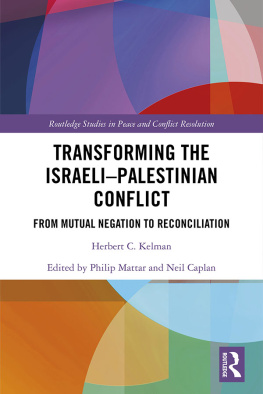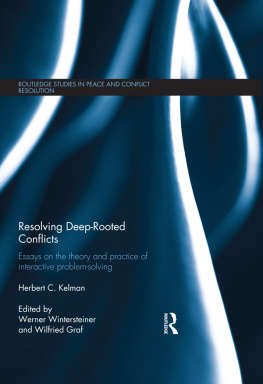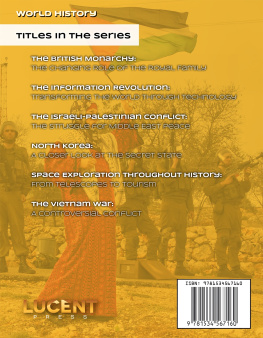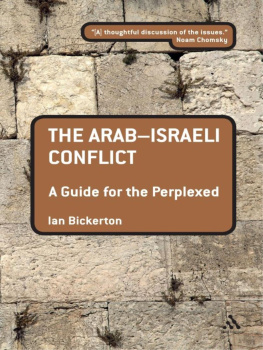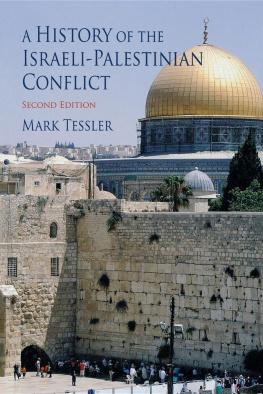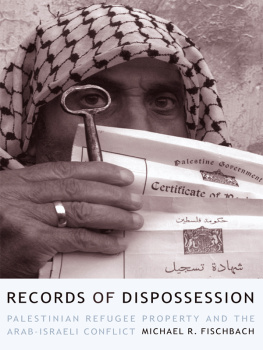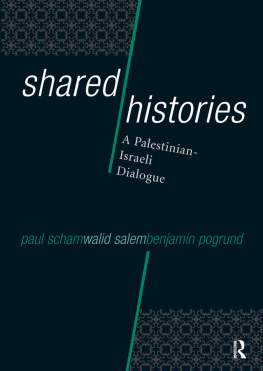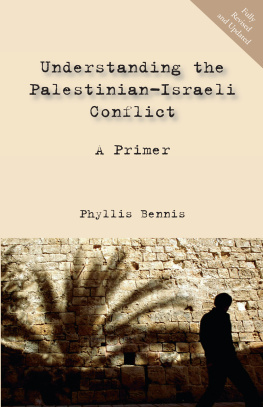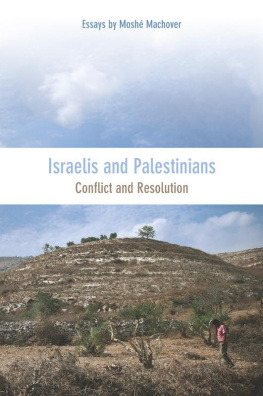Transforming the IsraeliPalestinian Conflict
This book is a collection of essential essays on resolving the IsraeliPalestinian conflict by eminent social psychologist Herbert C. Kelman.
Few experts or practitioners know the IsraeliPalestinian conflict as well as Kelman, and for over forty years he has conducted interactive problem-solving workshops at Harvard University and elsewhere, engaging more than one hundred Israeli, Arab and Palestinian political activists, journalists and intellectuals in constructive dialogue. Spanning the years 1978 to 2017, the essays gathered here are still relevant today, and attest to the authors broad empathy for Palestinians and Israelis and his passionate pursuit of a resolution of their conflict based on consistent principles that satisfy the essential psychological needs and minimum political interests of both. The selected essays are not only insightful academic papers, but also serve as snapshots-in-time of the ebb and flow of conflict and peace efforts as well as guideposts for future would-be negotiators and facilitators.
This volume will be of much interest to students of Middle Eastern politics, peace and conflict studies, and international relations, and will help would-be negotiators and mediators in practice.
Herbert C. Kelman is Richard Clarke Cabot Professor of Social Ethics, Emeritus, at Harvard University, USA. His major publications include International Behavior (editor; 1965), A Time to Speak (1968), and Crimes of Obedience (with V. Lee Hamilton; 1989). He is Honorary President of the Herbert C. Kelman Institute for Interactive Conflict Transformation, based in Austria.
Philip Mattar is the editor of the Encyclopedia of the Palestinians and of the Encyclopedia of the Modern Middle East and North Africa. He is author of The Mufti of Jerusalem. He has been a Fulbright Scholar, a Fellow at The Woodrow Wilson Center, and a Senior Fellow at the US Institute for Peace. He was a founder of the Palestinian American Research Center (PARC) and director of the Institute for Palestine Studies in Washington, D.C.
Neil Caplan taught at Vanier College and at McGill, Concordia and Queens Universities in Canada until his retirement in 2008. His publications include Palestine Jewry and the Arab Question, 19171925, Futile Diplomacy, 19131956 (4 vols.), The IsraelPalestine Conflict: Contested Histories, and (with Laura Eisenberg) Negotiating ArabIsraeli Peace: Patterns, Problems, Possibilities.
Routledge Studies in Peace and Conflict Resolution
Series Editors: Tom Woodhouse and Oliver Ramsbotham
University of Bradford
The field of peace and conflict research has grown enormously as an academic pursuit in recent years, gaining credibility and relevance amongst policy makers and in the international humanitarian and NGO sector. The Routledge Studies in Peace and Conflict Resolution series aims to provide an outlet for some of the most significant new work emerging from this academic community, and to establish itself as a leading platform for innovative work at the point where peace and conflict research impacts on International Relations theory and processes.
International Intervention, Identity and Conflict Transformation
Bridges and Walls Between Groups
Timea Spitka
Arab Approaches to Conflict Resolution
Mediation, Negotiation and Settlement of Political Disputes
Nahla Hamdan and Frederic S. Pearson
Local Peacebuilding and Legitimacy
Interactions Between National and Local Levels
Edited by Landon E. Hancock and Christopher Mitchell
Climate Change and Resource Conflict
The Role of Scarcity
Judith M. Bretthauer
Transforming the IsraeliPalestinian Conflict
From Mutual Negation to Reconciliation
Herbert C. Kelman Edited by Philip Mattar and Neil Caplan
For more information about this series, please visit: www.routledge.com/Routledge-Studies-in-Peace-and-Conflict-Resolution/book-series/RSPCR
Transforming the IsraeliPalestinian Conflict
From Mutual Negation to Reconciliation
Herbert C. Kelman
Edited by Philip Mattar and Neil Caplan
First published 2018
by Routledge
2 Park Square, Milton Park, Abingdon, Oxon OX14 4RN
and by Routledge
711 Third Avenue, New York, NY 10017
Routledge is an imprint of the Taylor & Francis Group, an informa business
2018 Herbert C. Kelman; selection and editorial matter, Philip Mattar and Neil Caplan
The right of Herbert C. Kelman to be identified as author of this work has been asserted by him in accordance with sections 77 and 78 of the Copyright, Designs and Patents Act 1988. The right of the editors to be identified as the authors of the editorial matter, and of the authors for their individual chapters, has been asserted in accordance with sections 77 and 78 of the Copyright, Designs and Patents Act 1988.
All rights reserved. No part of this book may be reprinted or reproduced or utilized in any form or by any electronic, mechanical, or other means, now known or hereafter invented, including photocopying and recording, or in any information storage or retrieval system, without permission in writing from the publishers.
Trademark notice: Product or corporate names may be trademarks or registered trademarks, and are used only for identification and explanation without intent to infringe.
British Library Cataloguing-in-Publication Data
A catalogue record for this book is available from the British Library
Library of Congress Cataloging-in-Publication Data
A catalog record for this book has been requested
ISBN: 978-1-138-04796-9 (hbk)
ISBN: 978-1-315-17049-7 (ebk)
Typeset in Times New Roman
by Wearset Ltd, Boldon, Tyne and Wear
To the memory of Esther and Max Ticktin, my sister and brother-in-law, who shared my lifelong commitment to peace and justice for Israel and Palestine
Contents
Acknowledgments
The idea of a collection of some of my articles on the IsraeliPalestinian conflict was proposed by Philip Mattaran old friend, who co-facilitated about half a dozen IsraeliPalestinian workshops with me during the 1980s. Philip very generously offered to edit the volume and he, in turn, invited Neil Caplan to join the endeavor. Between them, they brought an enormous amount of knowledge, skill, and experience to the endeavoras historians of the conflict, as writers, and as editors. I also appreciate their patience with the delays we experienced in the endeavorfor many of which I bear the primary responsibility.
My assistant, Cassandra de Alba, has played a central role in all phases of the production of this volume. Her skill, initiative, persistence, and attention to detail (not to speak of her ability to decipher my handwriting) have been indispensable to this endeavor.
in this volume were previously published. I am grateful to the original publishers for their permission to reprint these pieces in the present collection.
Much of what I have learned about the IsraeliPalestinian conflict derives from my unique opportunity to listen to and interact with the participants in our IsraeliPalestinian workshops, working groups, and other meetings over the years. I owe them a great debt for giving me that opportunityoften at personal cost or risk. The editors of this volume suggested including a list of these participants in an appendix. Since the meetings were confidential, this required getting their permissionor permission of the next of kin of those who have passed away. Cassandra succeeded in locating 120 of the 160 participants on our list. Of these, over 90% agreed to have their names listed.

